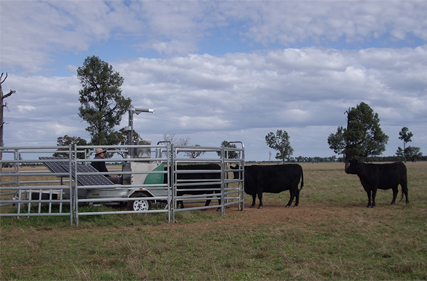 Cattle Australia has welcomed Oxford University Physicist Myles Allen to Australia to address the oversimplified accounting of methane emissions.
Cattle Australia has welcomed Oxford University Physicist Myles Allen to Australia to address the oversimplified accounting of methane emissions.
Professor Allen was the architect of the GWP* metric that was specifically designed to accurately account for the warming impact of short-lived gasses.
Cattle Australia CEO Luke Bowen thanked Professor Allen for meeting with industry, journalists and policymakers at Hotel Kurrajong in Canberra.
“Professor Allen has clearly demonstrated why we need to look at methane emissions more closely,” Mr Bowen said.
“Beef emissions are dynamic and shouldn’t be measured the same way as CO2.
“Several significant factors are ignored when our emissions are measured this way.
“Short-lived gasses, such as methane, do not have a warming legacy, whereas CO2 lasts thousands of years.
“When the short lifespan of livestock methane is taken into account, you find an industry’s gases stop contributing to warming after 12 years if your herd size is constant.
“What’s more important, is when we cut methane emissions, we reverse our warming impact, something that does not apply to CO2.
“Being part of a natural cycle means the carbon in our emissions goes back into growing the grass and vegetation which sustains our cattle, the natural environment.
“Professor Allen has undertaken a significant analysis of these dynamics to develop a metric that fairly represents the impact methane has on warming.
“It’s important to note Professor Allen is an advocate for good science and not an advocate for livestock industries.
“At the same time, our policy settings must be based on the best available science, so our efforts have the most impact.
“It’s time Australia recognised the true warming impact of the grassfed beef industry, which will be neutral by 2026 – and well before net zero.
“Taking the time to understand the climate contribution of the beef industry will put us in a position to take meaningful climate action.”
-Cattle Australia
